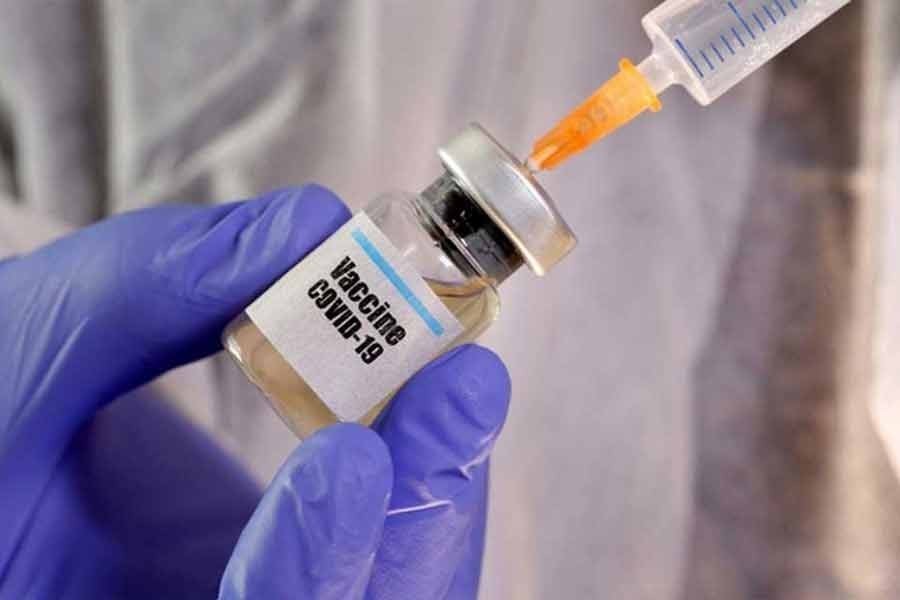
Published :
Updated :

The following is a roundup of some of the latest scientific studies on the novel coronavirus and efforts to find treatments and vaccines for COVID-19, the illness caused by the virus.
New drug helps COVID-19 patients breathe on their own
When a new monoclonal antibody drug was added to treatments being given to hospitalised COVID-19 patients who were still breathing on their own, the drug - lenzilumab from Humanigen Inc - significantly improved their odds of not needing invasive mechanical ventilation, researchers found. The 540 patients in the randomised trial were already receiving a variety of standard treatments. Half of them also received lenzilumab via three intravenous infusions. In a paper posted on Wednesday on medRxiv ahead of peer review, the research team reported that patients in the lenzilumab group had a 54 per cent better chance of surviving without needing mechanical ventilation. In patients receiving steroids and Gilead Sciences antiviral drug remdesivir, the addition of lenzilumab improved survival without the need for mechanical ventilation by 92 per cent. In patients under age 85 whose immune system was in the early stages of triggering a life-threatening inflammatory response, lenzilumab improved the odds of ventilator-free survival by nearly three-fold. Humanigen Chief Executive and study coauthor Dr. Cameron Durrant said his team believes the results "indicate a substantial improvement in COVID-19 treatment."
A controversial new paper based on laboratory experiments suggests a possible explanation for why some COVID-19 survivors still test positive on viral RNA tests months later. Small fragments of genetic instructions from the coronavirus might get integrated into infected cells' genome. In the experiments, the fragments that got inserted into the cell's genetic code came mainly from the tail-end of the viral genome and cannot induce the cell to create infectious virus. However, they might be enough to trigger a positive result on COVID-19 PCR tests. "There is no evidence that the process of these integrations into the genome causes harm," said study leader Rudolf Jaenisch of the Whitehead Institute for Biomedical Research at MIT, adding that the researchers believe that is very unlikely. Other experts have said the findings, reported on Thursday in the journal PNAS, likely reflect unintended effects of experimental methods. The researchers have so far seen the phenomenon only in test tubes. They are trying to find direct evidence for SARS-CoV-2 sequences integrated into the genome in patients, "but these experiments are technically very challenging," Jaenisch said. The vaccines from Pfizer/BioNTech BNTX.O> and Moderna use messenger RNA to teach cells to make a protein that resembles a site on the virus. But the cell quickly breaks down the RNA and gets rid of it. "There is no evidence that vaccine RNA could integrate and we believe that this is highly unlikely," Jaenisch said. The high risks of complications from COVID-19 "would be a very strong incentive to get the vaccine," he said, citing negligible risk from the shots.
Home monitoring may keep COVID-19 patients out of hospital
A home monitoring programme for patients with COVID-19 may be associated with lower odds of hospitalisation, according to a new study. At the Cleveland Clinic, doctors remotely monitored 3,975 COVID-19 patients for up to 14 days after a positive test. In a study published on Thursday in JAMA Health Forum, they compared patterns of healthcare use by these patients and by 3,221 similar patients who did not participate in the program. A month after diagnosis, participants in the home monitoring programme were 27 per cent less likely than nonparticipants to have been hospitalised, although they had about a two-fold higher likelihood of outpatient visits with the home monitoring programme. "As the pandemic continued and we learned more and more about the outcomes of the programme, and the natural course of COVID infections in groups of patients, we were able to fine tune the programme to those with highest risk," said Dr. Anita Misra-Hebert, director of the Clinic's Healthcare Delivery & Implementation Science Center. The trial was not randomised and does not provide conclusive evidence of the programme's value. Instead, the researchers write, the results "support the need for randomised trials to evaluate home monitoring programmes ... after COVID-19 diagnosis."


 For all latest news, follow The Financial Express Google News channel.
For all latest news, follow The Financial Express Google News channel.